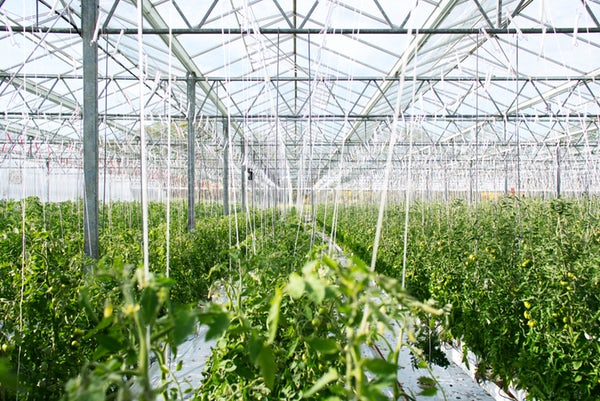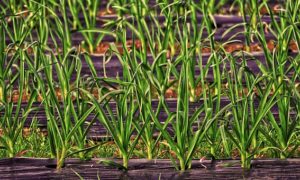18th June 2019 Beijing, China
UK and China join hands to address agricultural challenges

Spring is an important season for farmers as it is a season that they start to sow and hope for a bumper harvest in autumn; it is also the season for agricultural production which helps to maintain the stability of economic development. This spring saw the kick-off of our Newton Fund UK-China Agri-tech Challenges projects. As Newton Fund Programme Officer who has been closely involved in the programme, I was delighted to attend two kick-off workshops of the nine projects funded.
It is well known that China feeds 22% of the world’s population on 7% of the world’s land. The importance of agriculture and food in China is quite self-explanatory. However, in the pursuit of high yield and food productivity, there have been great challenges, which are also global challenges, challenges in such as improving the efficiency of sustainable agricultural production, agricultural products processing and precision agriculture, agriculture digitization and decision management tools. Researchers and industry partners from UK and China join hands to address these challenges.

As we now realize plastics are harmful to the environment – plastic particles are even found in 75% of deep sea fish and undegradable plastic bags cause white pollution. Plastics used in agriculture poses the same issue. Commonly used mulch films are made of polyethylene, which when buried in the ground show very limited levels of degradation. In the long term, this plastic residue accumulation as an impact on soil microorganisms and soil fertility, thereby threatening food production. The project Zero-Waste Agricultural Mulch Films for Crops in China (ZEWAMFI) will design a cost-effective polymeric material that would remain stable during use, but once buried in soil after useful life will degrade. This will be of particular significance to the growers especially the small growers in China (semi-arid and suffering from water poverty) to increase their profitability and improve their living standards.

The sustainability development goal is not only targeted in agricultural production but also in agricultural products processing. China has one of the world’s largest mandarin industries, producing 26 million tons of produce a year and generates 1 million tons of solid waste and 10 million tons of liquid waste whilst employing over a million workers. As one of China’s priorities to eliminate waste and improve food safety, the project Citrus Waste Valorization for Improved Food Safety and Health (CITRUSAFE) will apply green technology to improve shelf life of raw material, and efficiency of extraction to improve functionality of citrus by-products. Led by the top research organizations in the field of food sciences, researchers and industry partners will improve food safety by applying mandarin biopolymers to replace animal products (such as animal fats) and citrus extracts to replace chemical preservatives in food and packaging which will extend shelf life of meat and fish.
Sitting amongst partners of the two projects, I felt very excited to understand their projects and look forward to visiting their demonstration centres in three years’ time; these two projects are a glimpse into the collaboration between UK and China to work collectively to address challenges and achieve sustainable development goals in agriculture. Stay tuned for more!
Notes:
1. Newton Fund Agri-tech Challenges Programme is funded by the UK Research and Innovation (specifically Innovate UK and Biotechnology and Biological Sciences Research Council) and China’s Ministry of Science and Technology (MoST) with a total funding of £8 million from the UK and RMB 60 million from China. The programme aims to bring together businesses and academia together to solve agricultural challenges in China which are also part of the global challenges.
2. The project ZEWAMFI is led by Bangor University and the Institute for Environment and Sustainable Development in Agriculture, Chinese Academy of Agricultural Sciences (IEDA-CAAS).
3. The project CITRUSAFE is led by the University of Leeds and Zhejiang Gongshang University.